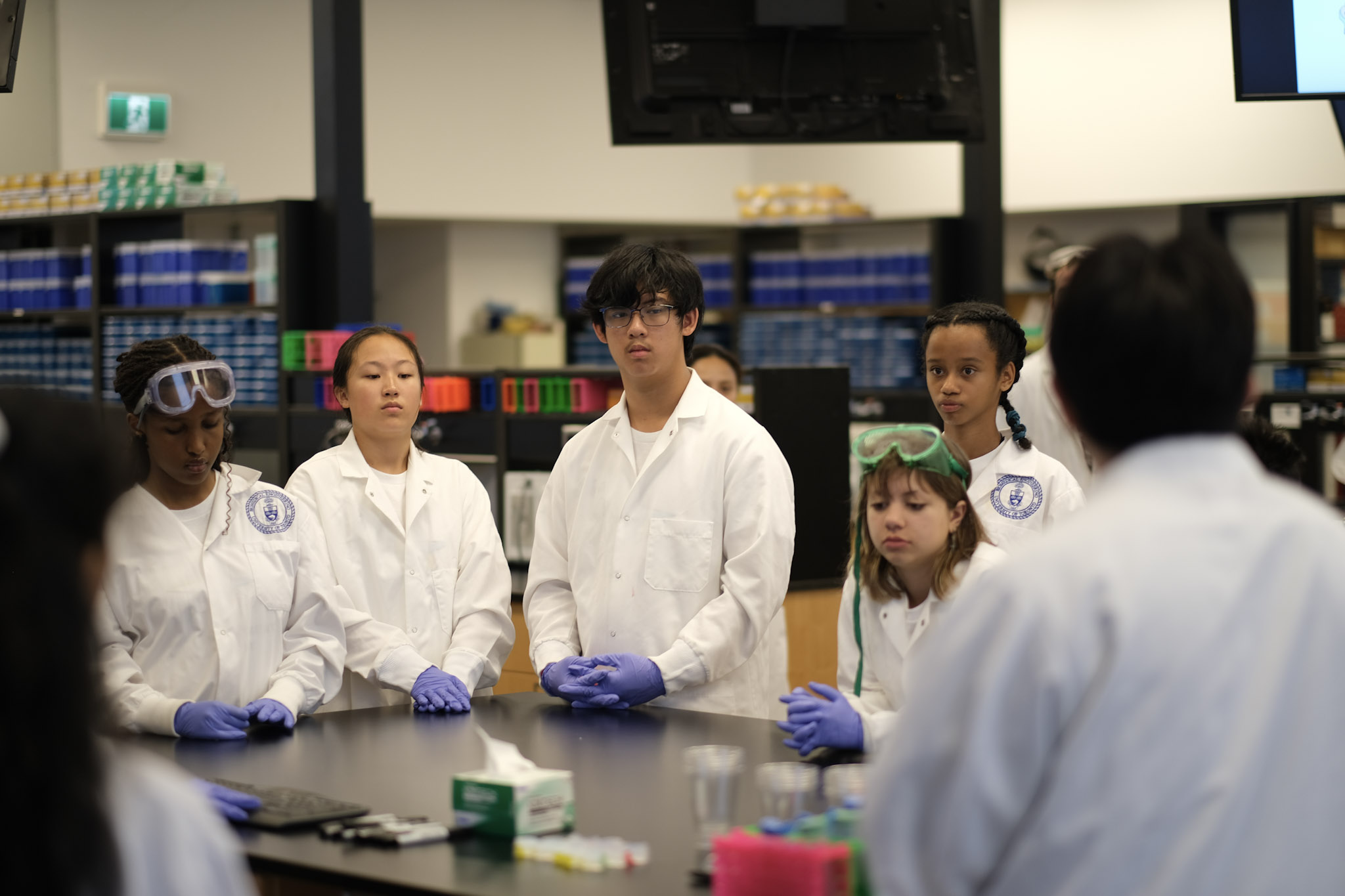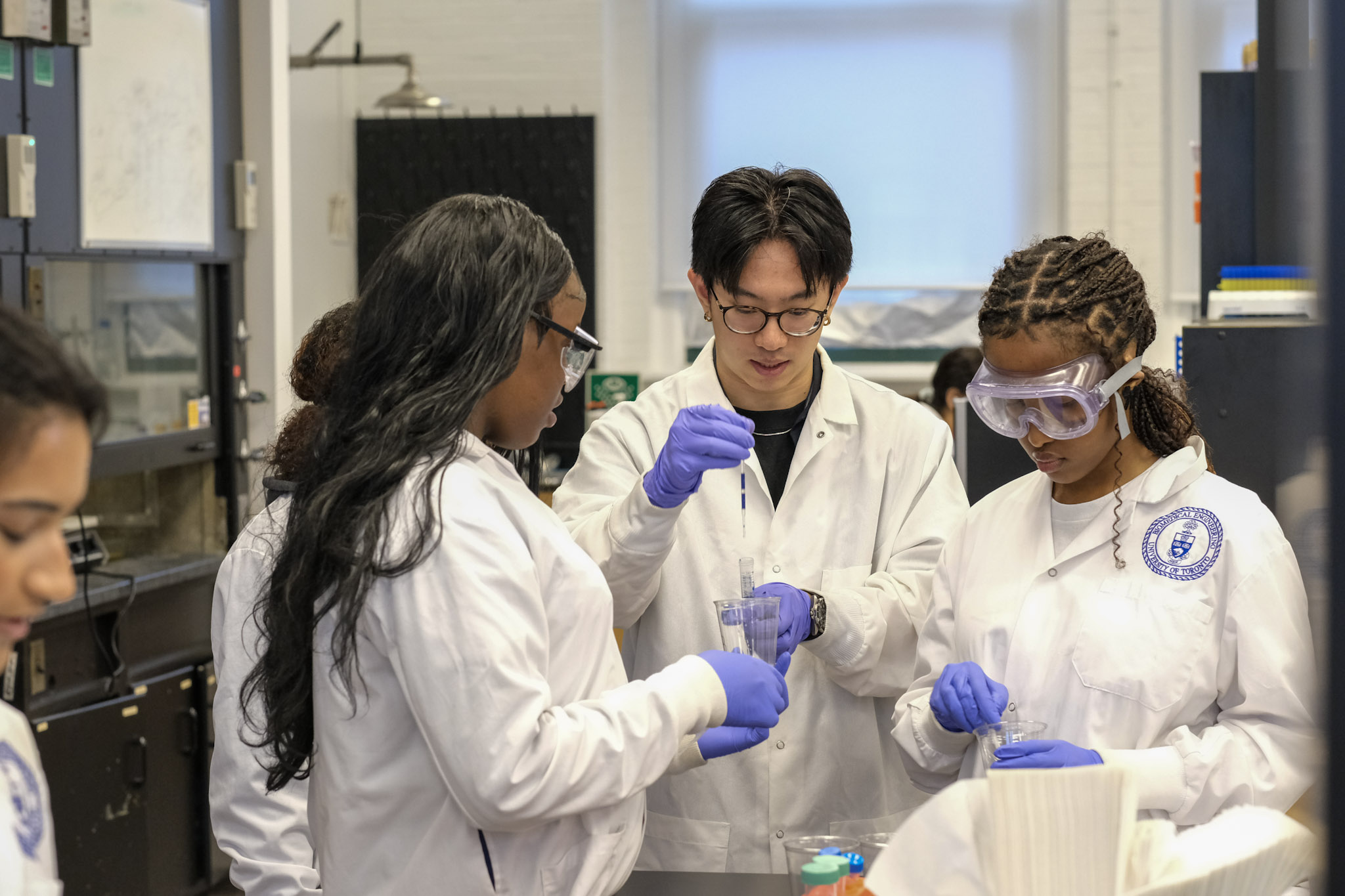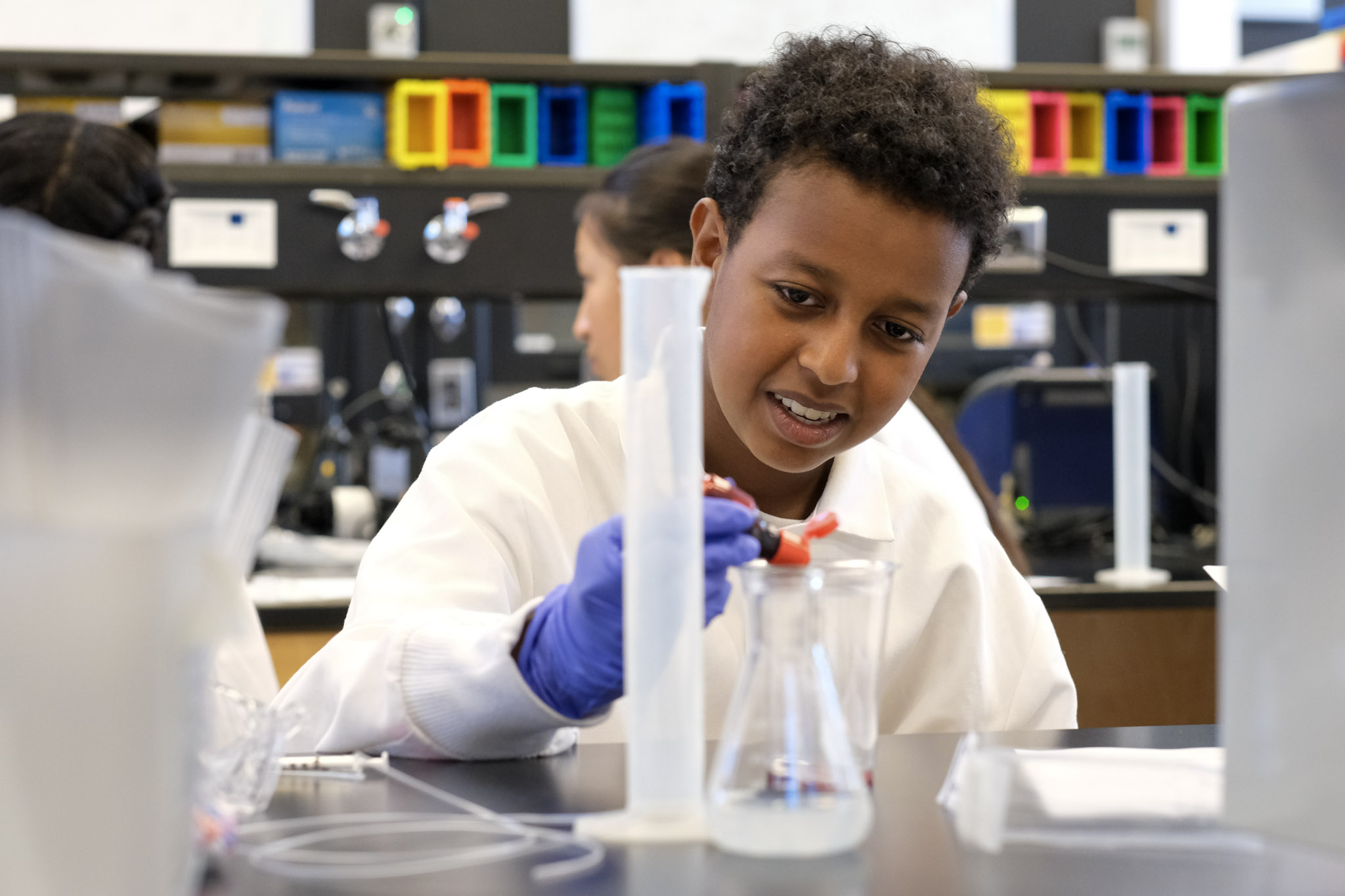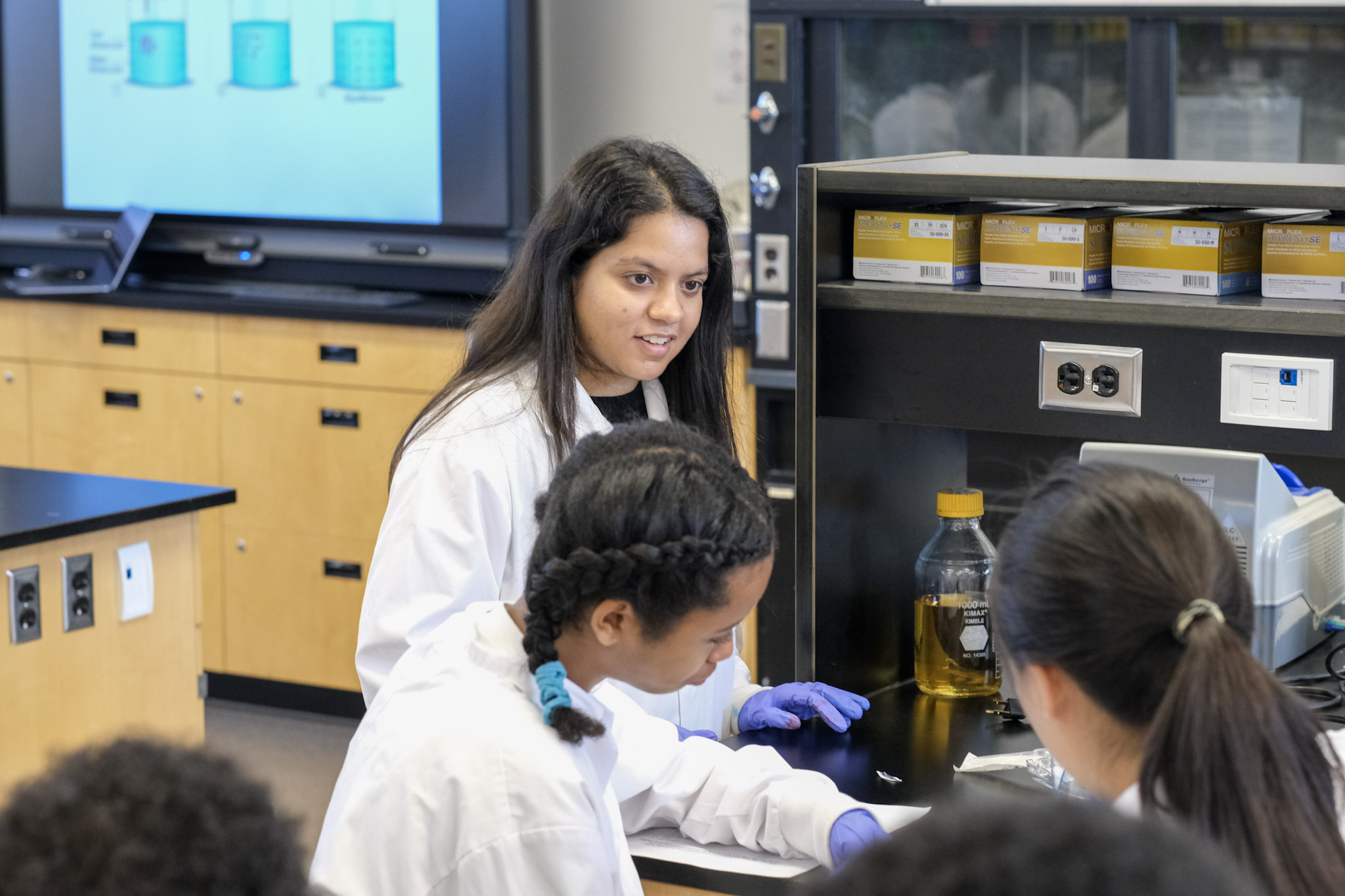This summer, the Institute of Biomedical Engineering (BME) at the University of Toronto (U of T) hosted a series of hands-on workshops (iBEAM) in collaboration with the U of T Enrichment Academy’s outreach initiative. This University-wide initiative aims to enrich the educational experiences of historically underrepresented high school students and guide them toward successful post-secondary education.
The U of T Enrichment Academy addresses the critical need for broader access to the University’s undergraduate programs. It targets first-generation university-bound students and those from underrepresented backgrounds. The initiative collaborates with community organizations and school boards in the Greater Toronto Area to identify and support students from grade 9 onwards who show academic promise but need additional encouragement and enrichment to stay on a university-bound path.
“The Enrichment Academy is a unique multi-year scholars enrolment program inspired by the Rutgers Future Scholars model for post-secondary access. The program thrives on the support from faculty, graduate students and departments that provide programming like BME and iBEAM. We are only able to inspire students to Explore, Aspire, and Succeed with dynamic hands-on activities like those offered through BME and iBEAM.” Said Lydia Gill Blackett, the Assistant Director of University Student Recruitment – Equity & Outreach at the University of Toronto.
This year, the U of T Enrichment Academy offered various workshops from July 9-12, covering topics such as Biomedical Engineering, Commerce, Leadership, Math, Earth Science, and Professional Development.
Dr. Penney Gilbert, an associate professor at U of T, along with six BME graduate student volunteers, led four workshops focusing on showcasing the concepts of cell and tissue engineering.
“As a first-generation college graduate, it’s a joy to create opportunities for students to learn about biomedical engineering,” said Dr. Gilbert. “These workshops are designed to ignite curiosity and provide hands-on experiences that can inspire students to pursue careers in science and engineering.”
Graduate student volunteer Nitya Gulati shared her motivation for leading the workshops: “I want to inspire the next generation of biomedical engineers by showing them the exciting and impactful work we do. It’s important for students to see themselves in these roles and realize that they can make a real difference in the world through science and engineering.”






Workshop 1: Engineering Biomaterials for Drug Delivery
This activity-based workshop introduced students to hydrogels—water-rich materials engineered to interact with cells and tissues for medical purposes. Using seaweed-based hydrogels, students explored how biomaterials can help doctors deliver the right dose of a drug at the right time, highlighting the potential of these materials in medical applications.






















Workshop 2: Engineering Pancreas Tissue In-a-Dish
Envisioning a future where replacement tissues and organs are readily available, this hands-on workshop taught students the principles behind engineering replacement pancreas tissue. Participants learned about creating insulin-producing cells and blood vessels, providing a glimpse into the innovative field of tissue engineering and its life-saving potential.




















For more information on the U of T Enrichment Academy, please visit their website.


